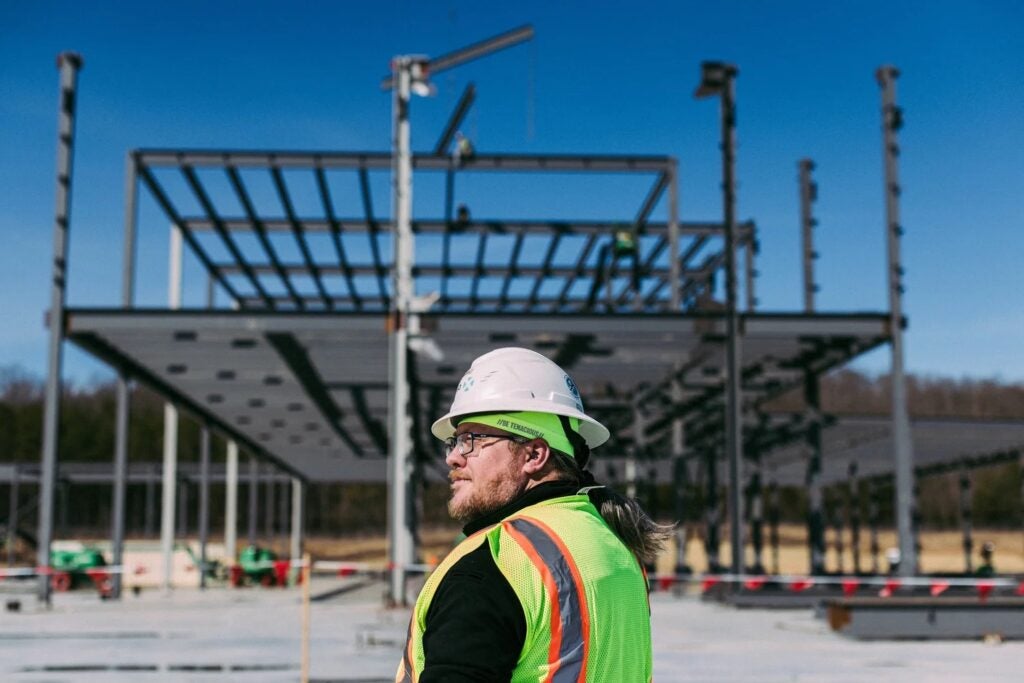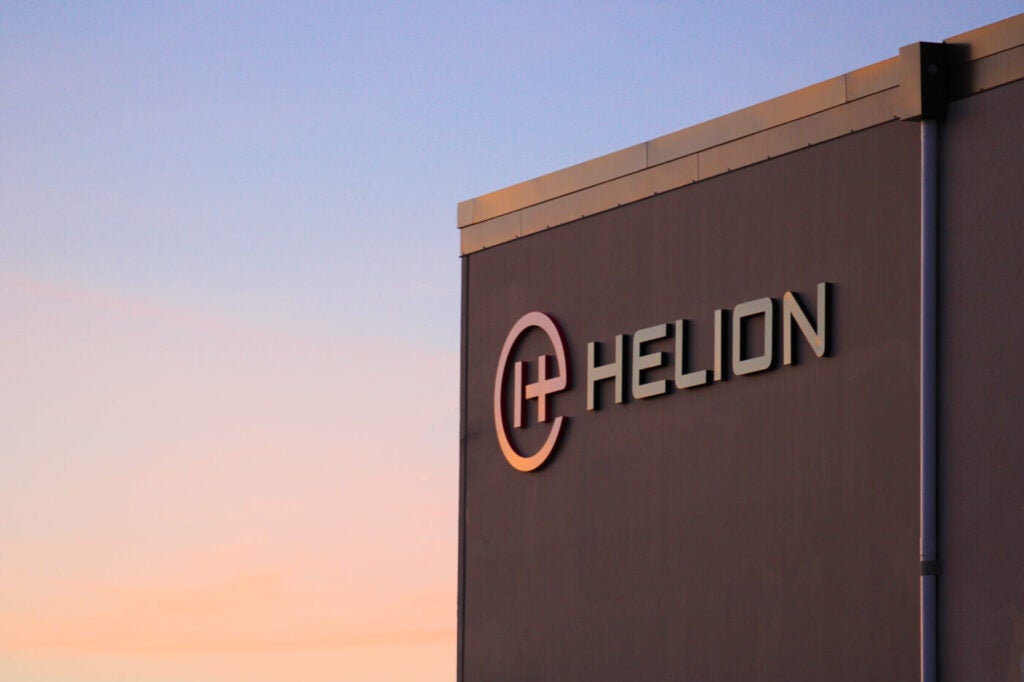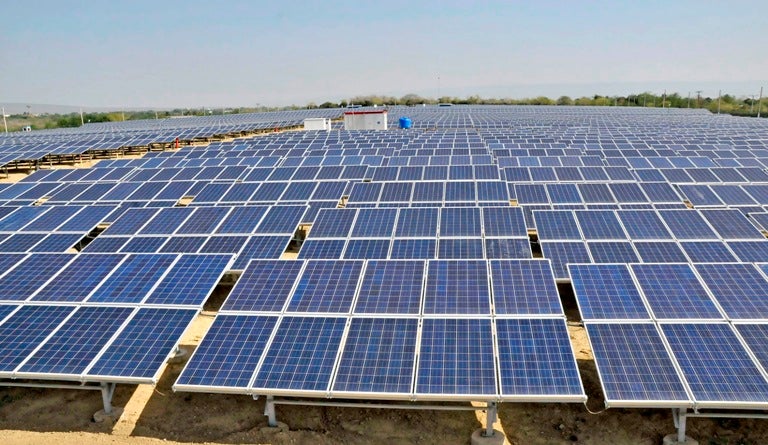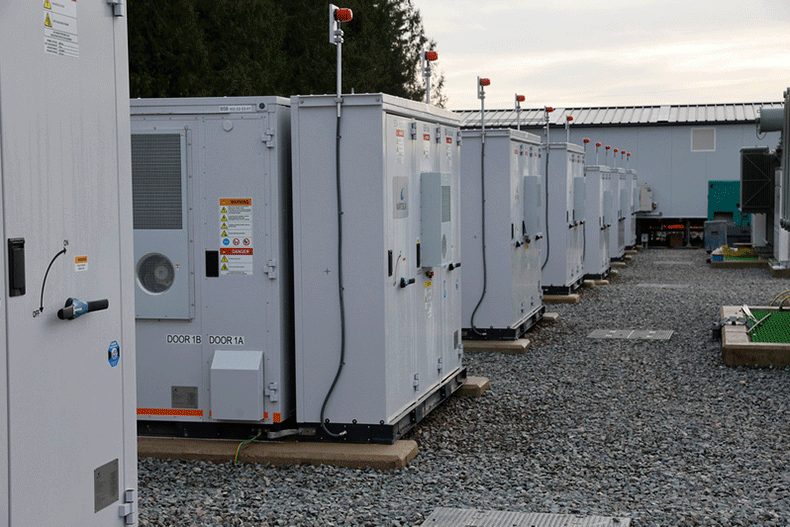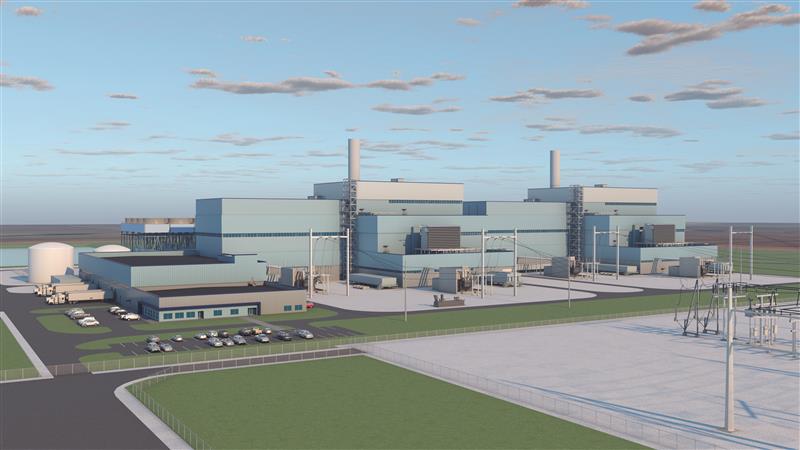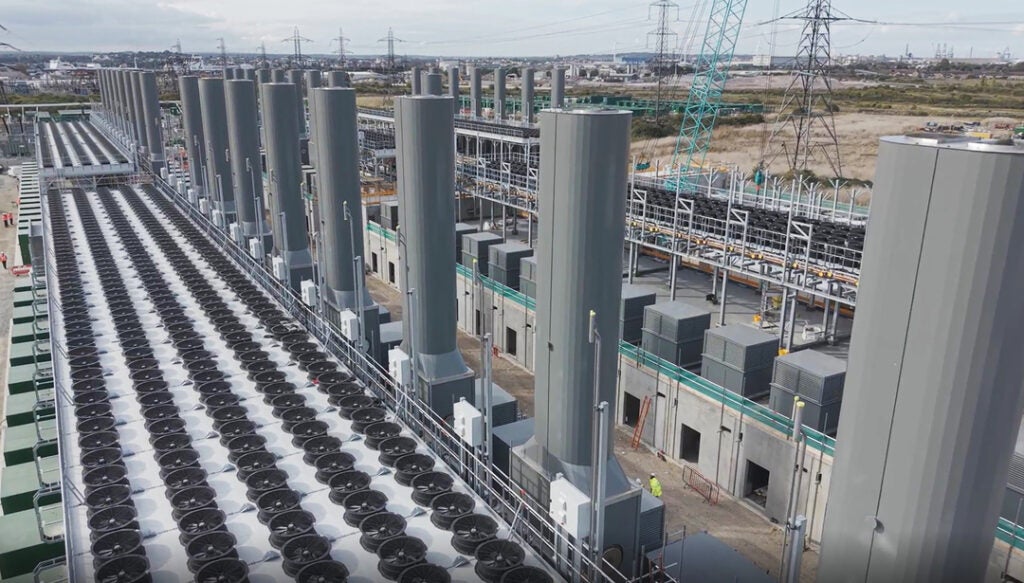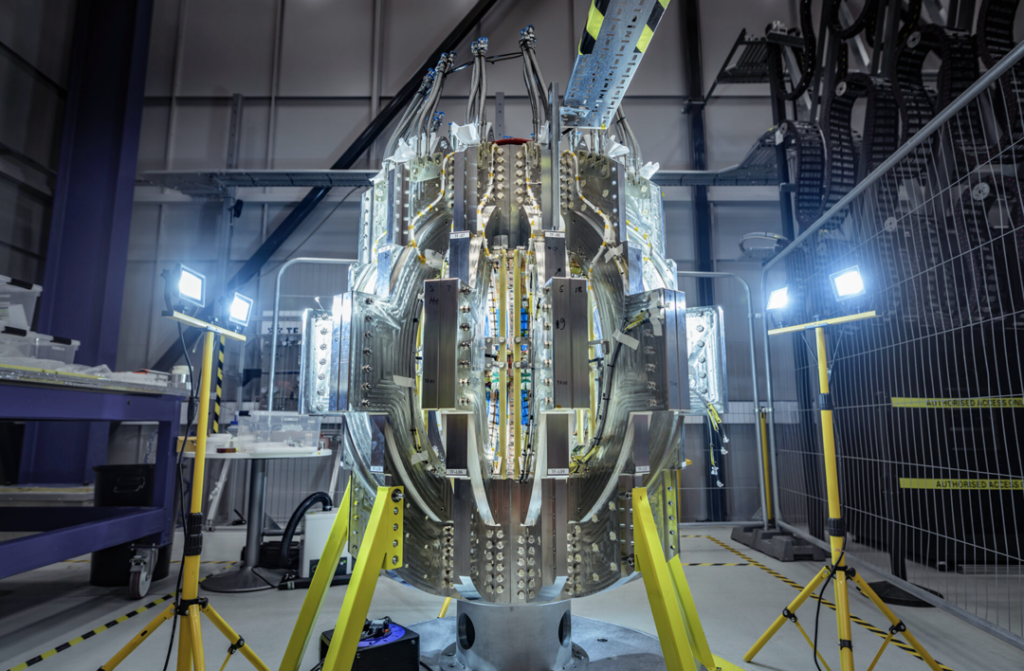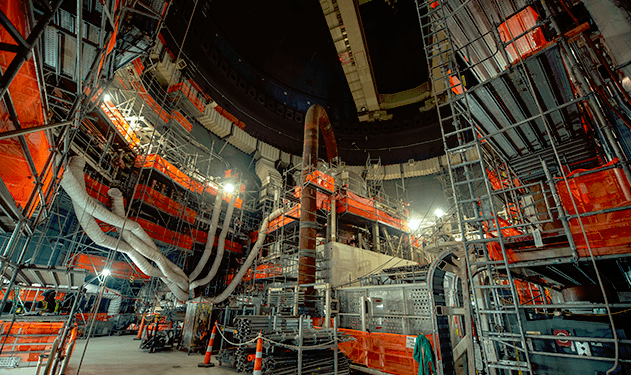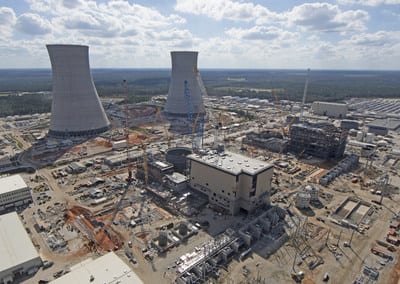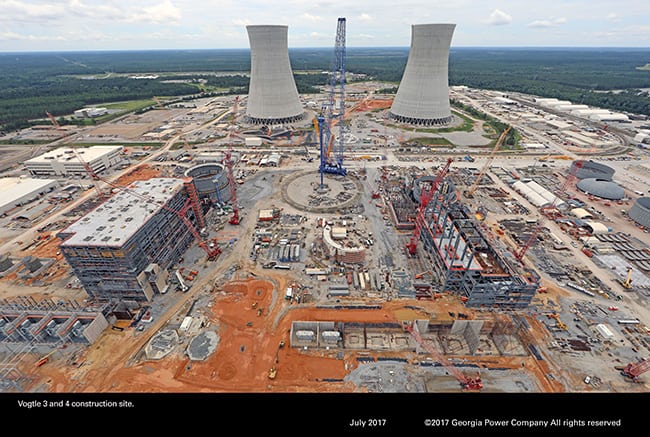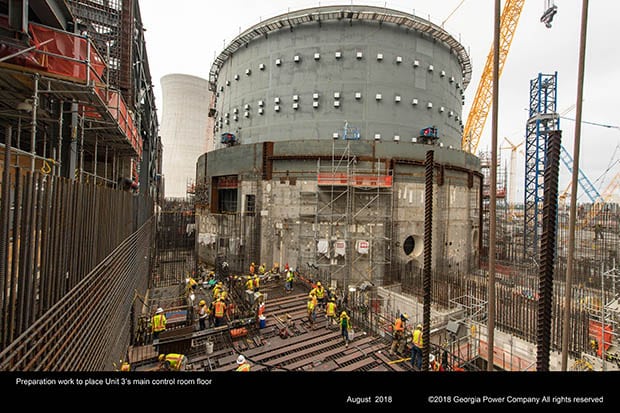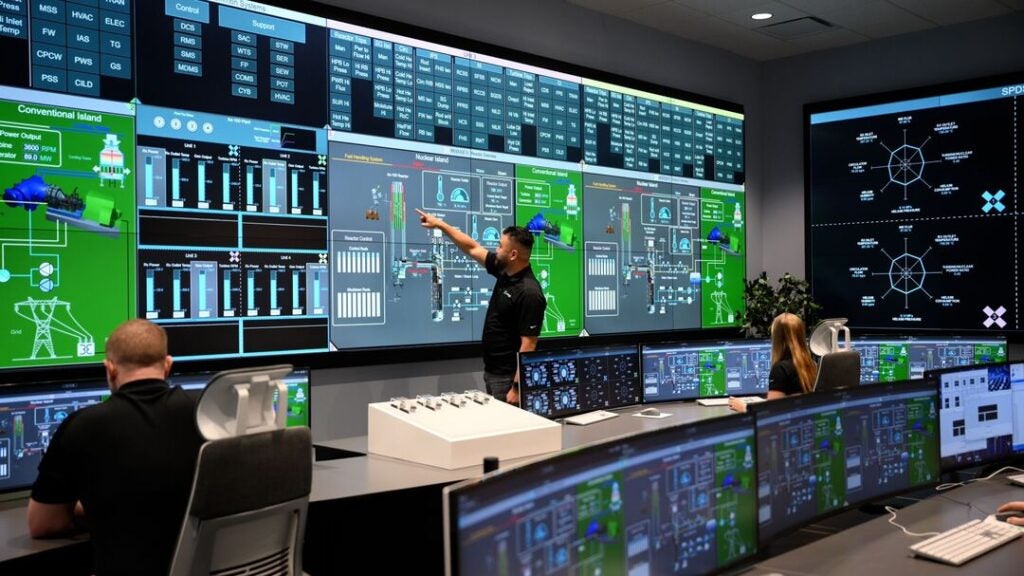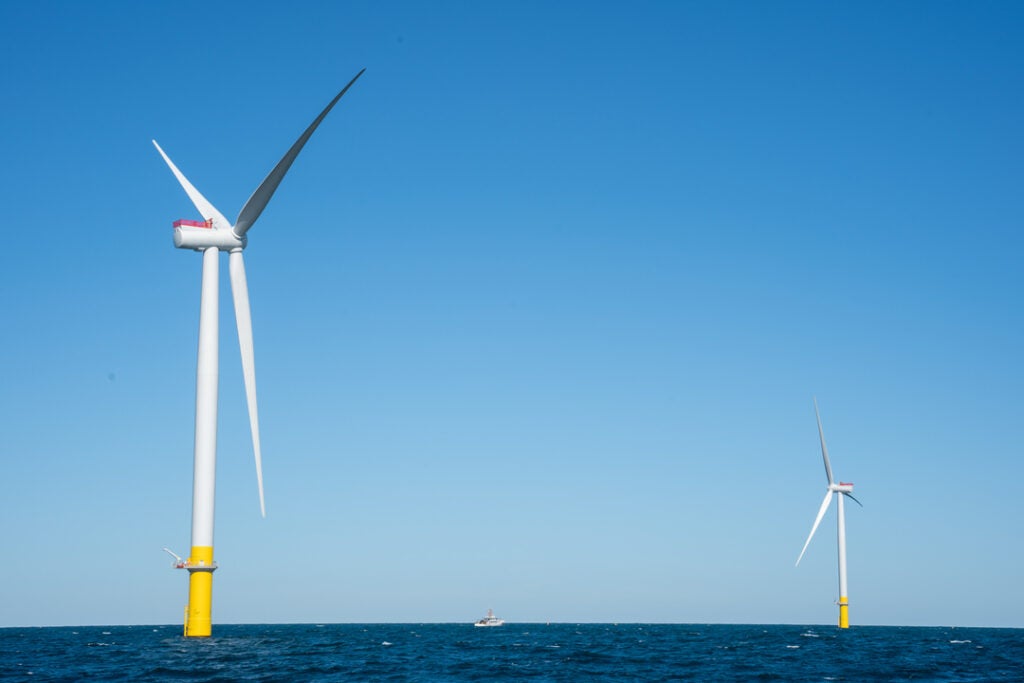The two-unit expansion at the Plant Vogtle nuclear power facility in Georgia remains a work in progress, a project that still holds the promise of emissions-free electricity even as construction delays and cost overruns continue to spark debate about its future.
Proponents, including Georgia regulators and nuclear energy advocates, remain optimistic about the amount of power two new reactors at Vogtle will provide to the region’s electricity customers. The project’s detractors point to the expansion’s ballooning budget, the potential for ratepayers to bear the brunt of the added costs, and ask whether the money would be better spent on expanding renewable energy and other infrastructure in the state.
Jeff Wilson, a spokesperson for Georgia Power, one of the owners of the project, on Jan. 26 told POWER the utility will file another project update with the Georgia Public Service Commission (PSC) next month, noting a “Vogtle Construction Monitoring (VCM) Report” is filed each February and August. The timeline could change, but at present the utility projects a Unit 3 in-service date in the third quarter of 2022, and a Unit 4 in-service date in the second quarter of 2023, according to Wilson.
Georgia Power is expected to file its latest Integrated Resource Plan (IRP) with the PSC by Jan. 31. The IRP could outline the direction of the utility’s power generation for the next several years.
The expansion at Plant Vogtle includes two 1,100-MW Westinghouse AP1000 (advanced passive) reactors (the Dept. of Energy’s [DOE’s] information about the project is here). The plant’s official name—the Alvin W. Vogtle Electric Generating Plant—comes from Alvin W. Vogtle Jr., the CEO of Southern Co. (parent of Georgia Power) from 1969 through 1983.
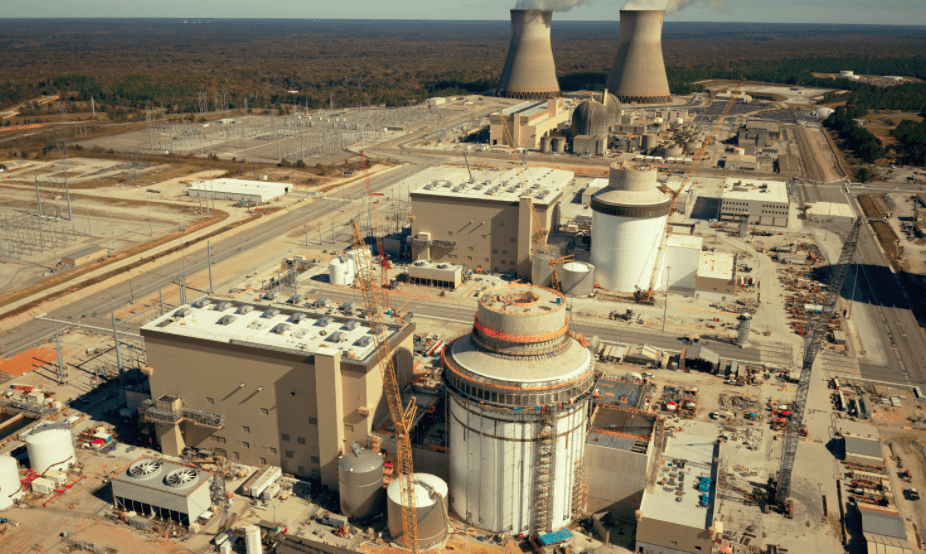
Plant Vogtle has two existing units in operation. Unit 1 entered service in 1987; Unit 2 came online in 1989. The current 2,430-MW plant is located near Waynesboro, Ga., on the Savannah River, southeast of Augusta, and is one of two nuclear power plants in the state (the Edwin I. Hatch Nuclear Plant near Baxley, Georgia, is the other).
Wilson in his update on the project said, “Unit 3 hot functional testing was completed last year. During hot functional testing, plant systems achieved normal operating pressure and temperature, without nuclear fuel, to verify the successful operation of reactor components and systems together.”
Wilson said direct construction of Unit 3 “is 99% complete. Plant equipment for Unit 4 is energized, or permanently powered, which is needed to perform all subsequent testing for the unit. With plant equipment previously running on temporary construction power, the achievement of initial energization marks another step towards system operations as Unit 4 continues to progress through its testing phase.”
Project’s Importance to Nuclear Sector
Energy analysts who have spoken with POWER have repeatedly touted the expansion project’s importance to the U.S. nuclear power sector. Vogtle is only utility-scale nuclear power project currently underway in the U.S.; a similar expansion at the V.C. Summer nuclear plant in South Carolina was abandoned in 2017, and has resulted in criminal charges and prison time for some of the principals involved in that project.
Chuck Goodnight, who leads the U.S. Nuclear Energy team at Arthur D. Little—a Boston, Massachusetts-based international management consulting firm—told POWER the Vogtle expansion is important for the U.S. nuclear power sector. He said in the current energy environment, meeting a need for more emissions-free baseload power is perhaps more important than ever.
“These are large reactors that will run for 60 years and probably 80 years,” said Goodnight, a consultant to the nuclear energy industry for more than 25 years, who also has worked for the DOE and the U.S. Dept. of Defense. “If you think about all those megawatts for even 60 years, that’s a huge amount of emissions-free energy.” Goodnight also said Vogtle is important to help Southern Co. meet its 2050 goal of net-zero emissions of carbon and greenhouse gases, and just one reason to push the Vogtle expansion across the finish line.
“If they don’t do this, then they’ve got to come up with a different strategy to meet that [2050] goal,” Goodnight said, adding that the project “will create a number of jobs, hundreds of jobs, and there’s also the infrastructure support with that. It will become a job generator for the region, so if you look at all those attributes, you have to say, ‘why would you stop?’ “
Fervent Opposition
Some groups point to other numbers, primarily the project’s ever-increasing price tag, as a reason they continue to oppose the expansion. A recent report from the Institute for Energy Economics and Financial Analysis (IEEFA), a nonprofit group that keeps a watchful eye on the economic viability of U.S. and global energy projects, said the total cost of Vogtle expansion has more than doubled and now exceeds $30 billion, after earlier cost estimates of about $14 billion. The IEEFA document notes the project is at least six years behind its original in-service schedule, and the group’s report said state regulators “should deny rate recovery” for Georgia Power for the cost overruns at Vogtle.
A group of former leaders in the nuclear power industry, including the former head of the U.S. Nuclear Regulatory Commission (NRC), on Jan. 25 released a statement arguing against construction of new reactors worldwide.
The Georgia Public Service Commission (PSC) is in the final stages of the most recent set of VCM hearings, according to a PSC spokesperson, who said the agency did not want to make a public comment on the current status of the Vogtle project. The spokesperson, though, pointed to the testimony and filings available on the PSC’s website, under docket 29849, that reference the project. Among the documents there is a post-hearing brief from the Concerned Ratepayers of Georgia, a group that opposes the expansion and has repeatedly called for construction to be stopped.
“Every other utility in the United States that began building nuclear plants since 2008 addressed this issue, some sooner than others,” the brief reads. “Eventually all concluded it was in the best interest of the utility and their customers to discontinue construction. In essence—cut your losses. All but GA [Georgia] Power/Southern Nuclear. Their strategy is to complete the Vogtle project and to pass all costs/losses on to their customers.”
A group known as Georgia Conservation Voters in December 2021 released a report titled “Ratepayer Robbery—The True Cost of Plant Vogtle,” in which it said in the case of Vogtle’s construction, “Georgia Power residential ratepayers have nearly the entirety of the risk” for the cost overruns of the project. The group said that after the Summer project in South Carolina was canceled, “Georgia continued on alone, racking up shocking costs for new nuclear energy for the 10th poorest state in the nation,” citing information from the U.S. Chamber of Commerce.
The group, a political organization that advocates for environmental protection, said in its report: “Georgia Power customers don’t need Plant Vogtle units 3 and 4 and never did,” adding that power demand forecasts made years ago “proved dramatically inaccurate.”
“Plant Vogtle is a monumental example of failed leadership, oversight and lack of forethought,” said Brionté McCorkle, GCV executive director, after the group’s report was published. “What started out as an overpriced $14 billion project has ballooned into more than $30 billion, and that doesn’t take into account the future costs of completing the units.”
Support from State Officials
Those who have supported the Vogtle project point to its energy production and job creation as reasons the expansion is worthwhile.
“Nuclear power is an investment with a 60- to 80-year return that our children, grandchildren and great-grandchildren will benefit from,” said Tricia Pridemore, chairman of the Georgia PSC. Pridemore told POWER, “It is carbon-free, politically neutral baseload energy and is part of a diverse generation mix. On top of that, it can run 24 hours a day, seven days a week.”
Tim Echols, vice chairman of the Georgia PSC, told POWER that Vogtle’s new units are needed as a source of baseload power even with growth in renewable energy projects. He recognized, though, the challenges of the expansion.
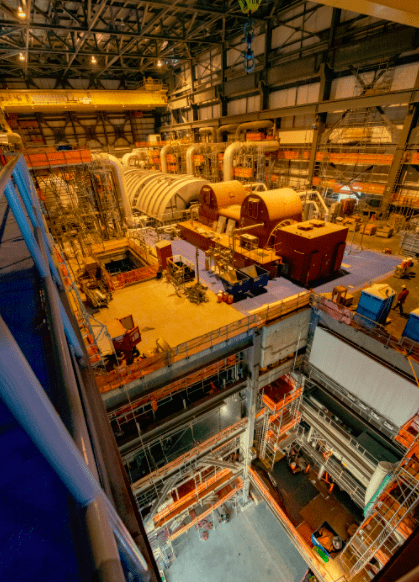
“With so much fossil dispatchable generation going away everywhere, a baseload plant like Vogtle will be more valuable with every solar panel installed,” said Echols, with baseload power needed to balance the intermittency of renewable energy on the grid. “That said, Plant Vogtle Units 3 and 4 have gone from being a great deal to now just a good deal—and we have a bankrupt Westinghouse to thank.” Westinghouse filed for Chapter 11 bankruptcy protection in March 2017, enabling the company to undergo a restructuring. The bankruptcy was a result of the costs the group incurred with both the Vogtle and Summer expansion projects.
The Westinghouse episode is emblematic of the issues surrounding the Vogtle project, but Echols and others continue to say getting Units 3 and 4 online is important for the U.S. nuclear power sector.
“Our country is on the brink of ceding nuclear superiority to China and Russia—and they most certainly will trade it for geopolitical alliances,” said Echols. “By finishing Vogtle, Georgia and the U.S. are showing the world that America is still in the nuclear business—but it can’t stop with our state.”
State officials also are mindful of the number of jobs Vogtle has supported during its years-long construction. Wilson, like Goodnight, noted that impact, and said, “With more than 7,000 workers on site, and more than 800 permanent jobs available once the units begin operating, Vogtle 3 & 4 is currently the largest jobs-producing construction project in the state of Georgia.”
DOE Funding
The expansion project has four owners—Georgia Power, Oglethorpe Power, the Municipal Electric Authority of Georgia (MEAG Power), and Dalton Utilities. The groups have continued to support the project despite its numerous challenges, as has the DOE, which has guaranteed loans totaling about $12 billion for the expansion.
Energy Secretary Jennifer Granholm, speaking during the annual meeting of the American Nuclear Society last summer, said, “President Biden is absolutely committed to getting this country powered by clean energy, using every single clean energy tool available.” Noting the administration’s goal of 100% clean energy by 2035, and a net-zero economy by 2050, Granholm said, “Those are big goals, so let me say it loud and clear: Carbon-free nuclear power is an absolutely critical part of our decarbonization equation.”
Even with federal government support for nuclear power, the odds of another major U.S. new-build project such as Vogtle are likely long.
“I think that the lessons learned from both V.C. Summer and Vogtle is that these large-scale reactors are very difficult to design and build,” said Goodnight. “I think what needs to happen with the industry, is a focus on small modular reactors and advanced reactors. We’re learning lessons about how to construct them better, and with lower costs, and utilities will be more interested in nuclear power applications that are better, and faster and cheaper to build.”
End of an ERA?
That could mean Vogtle would be the end of an era for U.S. utility-scale nuclear power. That may also provide impetus to successfully complete the project despite its continued setbacks, including delays caused by a reduced workforce due to the pandemic.
“We knew building the first new nuclear units in the U.S. in more than 30 years would be challenging, but the project has endured extraordinary circumstances during construction, including the pandemic as the most recent,” said Wilson. “Through it all, the project has endured and overcome multiple challenges.”
Goodnight acknowledged those challenges and said the investment already made in the expansion is a reason it needs to be completed. “I think the project should continue unless there is some significant change that we don’t know about,” he said. “If we look back five years from now and say we didn’t finish this project, and we were so close … it would be a tremendous waste of money and energy.”
Goodnight continued: “[And] they are really close. Traditionally, when you get a nuclear plant past the hot functional testing phase, you’re normally within a year plus or minus getting connected to the grid and beginning commercial operation. So we’re really very close to the end here, and if you go back to why they’re building these plants in the first place, they’re doing it due to increased demand [for electricity], and these plants are zero emissions.”
Opponents of nuclear power, and of the Vogtle project in particular, have been vocal and loud in their condemnation of the project, which means it’s likely to be a focus of continued scrutiny. Inspectors from the NRC last year increased their oversight of the expansion’s construction, which heightened safety concerns. And concerns about the project’s costs could linger for years.
Meanwhile, the benefits of the two new reactors can only be recognized after they’re up and running.
“Vogtle Units 3 & 4 remain a critical investment for this state that will provide long-term benefits for our customers over the next 60 to 80 years,” Wilson said. “These nuclear units, just like Units 1 & 2 already at Vogtle, are the most reliable energy source and able to generate electricity at full power 24/7, more than twice as much as solar and wind. Our new Vogtle units will be clean energy sources and produce zero air pollution. That’s why we remain fully committed to getting the job done—and getting it done right—with safety and quality our top priority.”
—Darrell Proctor is a senior associate editor for POWER (@POWERmagazine).



